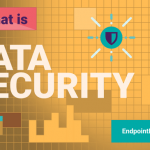
The Indian media and entertainment industry continues its impressive growth path and has expanded at a much faster rate than the global average. Along with this, the stakes related to data breaches are also getting higher for these organizations.
Media and entertainment companies, including television, print, film, and radio, have embraced digital transformation during the past decade. This is resulting not only in new and compelling ways of creating and delivering products, but also means collecting, storing, and using a massive amount of data to gain deeper insights about customers. With the proliferation of devices and applications, the increasing amount of content and data to handle, as well as the possibility of data breaches and leaks, cybersecurity has become a prevalent issue.
Data breaches pose significant financial and reputational risks to media and entertainment companies. The emergence of cloud applications, mobile devices, wireless connectivity, and other forms of computing has resulted in an increased potential for attack points. Protecting digital assets – like documents, motion pictures, and audible content for production – storage and distribution, and safeguarding valuable content from being stolen or misused are challenges broadcasters, media content producers, and distributors constantly face.
The Emergence of Data Protection Regulations
As general and industry-specific data protection regulations are becoming prevalent and more rigorous on a global level, compliance is also a crucial aspect to consider for companies. The implementation of the General Data Protection Regulation (GDPR) caused a stir amongst businesses worldwide. The EU-instituted legislation is an important milestone and reference point, and many countries are following suit.
Recently, the Indian Parliament passed the Digital Personal Data Protection Act (the DPDP Act), bringing to a close a 5-year process to enact an omnibus data privacy law in India. Taking inspiration from the GDPR, the DPDP Act incorporates several GDPR-like features, such as prioritizing user consent for data processing and mandating strict measures in case of data breaches. However, the DPDP Act introduces new concepts like “data fiduciary” and “data principal,” bringing in nuances tailored to the country’s sociocultural and economic contexts. Its objective is to strike a balance between individuals’ rights to data privacy and the need for data-driven innovation and growth.
Data Loss Prevention for Media Companies
As companies in the media and entertainment industry are vulnerable to threats on both the content and infrastructure sides, it is essential for them to have strong security measures in place to safeguard personally identifiable information (PII) and valuable intellectual property (IP). Additionally, contracts may have non-disclosure agreements that should be protected.
In data leakage incidents, confidential information is disclosed to unauthorized persons by either malicious intent or an inadvertent mistake. In the case of media and entertainment companies, it is extremely important to protect sensitive information about future productions, whether in text, image, video, or audio format. As the industry heavily relies on public trust, the pressure to protect information and their reputation is significant.
Data Loss Prevention (DLP) solutions, like Endpoint Protector by CoSoSys, can help media and entertainment companies safeguard their sensitive data.
Device Control
As a result of BYOD (Bring Your Own Device) and COPE (Corporate-Owned, Personally-Enabled) policies adopted by an increasing number of media and entertainment companies and the proliferation of devices at the workplace, risks related to security and privacy become primary concerns. From a security standpoint, these trends can be a sinkhole if users are unaware of the risks associated with carrying valuable business data with them.
With a DLP solution, businesses can ensure that end-users do not send potentially sensitive or critical information outside the corporate network. Endpoint Protector’s Device Control is a cross-platform functionality that enables the control of portable devices (i.e., USB storage devices, printers, iPads) connected to computers, and monitors all transfers of data to authorized devices.
Content Aware Protection
In order to provide profitable premium content, media and entertainment companies should employ an ongoing process to protect sensitive data against unauthorized usage and distribution. With content aware protection, companies can ensure that sensitive data doesn’t leave the organization and/or get into the hands of unauthorized users through various exit points and online applications.
Content Aware Protection from Endpoint Protector makes it possible to block the transmission of files depending on the file type. This includes:
- Graphic files (JPEG, BMP, PSD, TIFF, etc.)
- Office-related files (Word, Excel, PowerPoint, PDF, etc.)
- Archive files (ZIP, ACE, RAR, etc.)
- Media files (MOV, AVI, WAV, M3Uu, etc.)
Filters can be created based on predefined content, such as Social Security number, Aadhaar number, and phone number, blocking the transmission of the selected sensitive data. The Deep Packet Inspection feature allows the whitelisting and blacklisting of specific URLs and includes predefined policies that help companies achieve compliance with different regulations as well as allowing the creation of new policies.
Enforced Encryption
With accessibility and portability being an important part of daily work, sensitive data travels continuously. As portable devices can be easily lost or stolen, unencrypted USBs can easily constitute the cause of a major data breach.
Endpoint Protector’s cross-platform Enforced Encryption represents an added security layer for corporate confidential information that is transferred to USB portable storage devices. By using this, media and entertainment companies can ensure that sensitive data will not fall into the wrong hands due to unauthorized access, or lost or stolen devices.
eDiscovery
While data at rest is sometimes considered to be less vulnerable than data in transit, attackers – both external and internal – often find data at rest a more valuable target.
eDiscovery from Endpoint Protector scans sensitive data at rest residing on computers, shared file servers, and cloud storage, based on predefined custom content, file name, or a specific compliance profile. Based on the results, data can be encrypted or deleted.
Endpoint Protector can help media and entertainment companies in preventing potential data breaches and leaks by monitoring, detecting, and blocking sensitive data while in motion and at rest.
Download our free ebook on
Data Loss Prevention Best Practices
Helping IT Managers, IT Administrators and data security staff understand the concept and purpose of DLP and how to easily implement it.
















